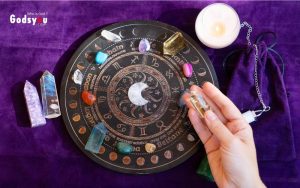The concepts of spirituality and religion are often used interchangeably, but they are not the same. While both involve a search for meaning, purpose, and connection with something greater than ourselves, they differ in structure, beliefs, and personal experience. Understanding the differences between spirituality and religion can help individuals find their own unique path to inner peace and fulfillment.
In this blog, we will explore the key distinctions between spirituality and religion and how they influence personal growth and well-being.
What is Religion?
Religion is an organized system of beliefs, practices, rituals, and moral codes that connect individuals to the divine or a higher power. It typically involves:
- Sacred texts (e.g., the Bible, Quran, Bhagavad Gita, Torah).
- Structured places of worship (e.g., churches, mosques, temples, synagogues).
- Specific doctrines and teachings that followers are expected to adhere to.
- Community-based worship and shared beliefs.
“Faith is taking the first step even when you don’t see the whole staircase.” — Martin Luther King Jr.
Examples of Religion: Christianity, Islam, Hinduism, Buddhism, Judaism, Sikhism, and many others.
Key Focus: Religion provides a clear framework, guiding principles, and rituals to connect believers to God, ethical values, and spiritual growth.
What is Spirituality?
Spirituality is a personal and individual journey toward self-discovery, enlightenment, and connection with the universe, the divine, or one’s higher self. Unlike religion, spirituality is not confined to institutions or doctrines.
Key aspects of spirituality:
- Inner journey and self-awareness rather than external rituals.
- Focus on personal experiences over formal beliefs.
- Seeking meaning through meditation, mindfulness, nature, or personal reflection.
- Emphasizing love, kindness, and universal energy rather than structured worship.
“The spiritual journey is individual, highly personal. It can’t be organized or regulated. It isn’t true that everyone should follow one path.” — Ram Dass
Key Focus: Spirituality encourages personal freedom, self-discovery, and an individualized approach to connecting with the divine or universal consciousness.
The Main Differences Between Spirituality and Religion
| Aspect | Religion | Spirituality |
|---|---|---|
| Definition | A structured system of faith and worship | A personal journey of self-discovery and connection |
| Belief System | Based on doctrines, scriptures, and rituals | Based on personal experiences and inner wisdom |
| Community | Collective worship with a shared faith | Often practiced individually, but can be shared |
| Practices | Includes prayer, rituals, and ceremonies | Includes meditation, mindfulness, and self-awareness |
| Authority | Guided by religious leaders (priests, imams, rabbis, monks) | No formal authority; personal exploration |
| View on God | Defined by religious texts and traditions | Open to interpretation; God, Universe, or Higher Self |
Can You Be Spiritual Without Being Religious?
Yes! Many people identify as spiritual but not religious (SBNR). This means they seek a deep connection with the universe, practice meditation or mindfulness, and follow their own beliefs without adhering to a specific religious doctrine.
Common beliefs of spiritual but not religious individuals:
- The universe is interconnected.
- Love, kindness, and gratitude are powerful energies.
- There is no single path to spiritual enlightenment.
“Spirituality does not come from religion. It comes from our soul.”
5. Can Religion and Spirituality Coexist?
Absolutely! Many religious individuals also embrace spirituality. For example:
- A Christian might follow church teachings while practicing mindfulness and personal reflection.
- A Buddhist might engage in temple rituals while also exploring personal meditation techniques.
- A Hindu might attend religious ceremonies but also seek inner enlightenment through yoga.
Balance Between the Two:
Many people find that combining religious traditions with personal spiritual experiences creates a deeper sense of faith, peace, and connection.
6. Which Path is Right for You?
There is no right or wrong choice—only what resonates with your heart and soul. Whether you follow a religion, spirituality, or a mix of both, the most important thing is that your path brings you peace, purpose, and fulfillment.
Ask Yourself:
- Do I feel more connected through structured beliefs or personal experiences?
- Do I prefer a community-based practice or a solo journey of self-discovery?
- What brings me a sense of inner peace—prayer, meditation, or a mix of both?
Final Thought:
At the core, both religion and spirituality aim to provide meaning, purpose, and inner peace. Whether you find comfort in religious teachings or seek your own spiritual path, the journey is uniquely yours.
“Religions are different roads converging upon the same point. What does it matter that we take different roads, so long as we reach the same goal?” — Mahatma Gandhi
Conclusion
Both spirituality and religion offer valuable paths to self-discovery, faith, and enlightenment. While religion provides structure and tradition, spirituality allows personal freedom and exploration. The choice is personal, and one is not superior to the other. The ultimate goal is to find peace, love, and fulfillment on your journey.







